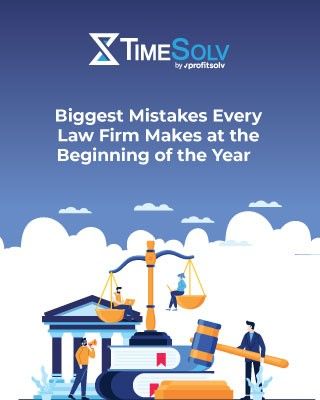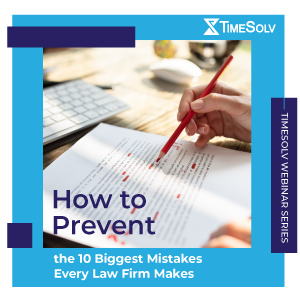From evaluating your monthly expenses to researching your local competition, chances are you’ve put a lot of effort into setting well-balanced rates for your services. But if your clients aren’t paying on time, even the most profitable fee structures won’t keep your firm afloat for long.
Getting paid on time is essential for the success of any business, and law firms are no exception. Fortunately, decreasing your accounts receivable, improving your cash flow, and motivating your clients to pay their legal bills on time and in full is a manageable goal.
You just need the right strategy and tools to support you.
Consider these six actionable tips to help you manage your law firm’s finances better—and actually get paid on time.
1. Keep your clients informed
Your clients can’t comply with payment terms and conditions they don’t know about.
Communicate your payment policies and procedures clearly and frequently. And, if possible, address any questions or concerns your clients may have about payment before beginning work on their legal matter. By proactively ensuring that your clients understand their payment obligations, you can maintain positive relationships and avoid the “feast or famine” cycle of waiting for late payments to arrive.
2. Make your invoices clear and concise
Communication is crucial when it comes to ensuring fast and efficient payment, and clear, concise invoices are one of the most under-utilized ways to communicate billing needs with your clients. When clients know exactly what they’re paying for, they’re more willing to settle their debts.
Not only should your invoices provide a detailed breakdown of the services provided, but they should also be easy to understand. Include your firm’s payment terms and deadlines, along with detailed descriptions of the services rendered.
Plain language is also vital. Avoid using jargon or codes in your invoices—and any other client communication, for that matter—to reduce confusion and foster better client relationships.
3. Accept electronic payments
Law firms of all sizes have been accepting credit cards, debit cards, eChecks, and ACH transfers from clients for years now. And the results are in—from increased client satisfaction to more consistent cash flows, electronic payments benefit clients and attorneys alike.
Accepting electronic payments also lightens the burden of payment processing for legal staff by alleviating common bottlenecks in the payment process. Best of all, electronic payments are fast enough to help your firm to achieve zero AR (accounts receivable) month after month. With the right legal payment processor, you can receive client funds as soon as the next day.
Like any payment method, though, electronic payments carry a measure of risk. Weigh the
pros and cons of each carefully against your firm’s budget and security standards. Most importantly, choose a payment processor with experience processing payments to and from trust accounts, such as TimeSolvPay.
With TimeSolv’s online payment system, you can empower your clients to review and pay their invoices online using various convenient payment methods, such as credit cards, bank transfers, and eChecks—without worrying about unintended compliance violations.
Biggest Mistakes Every Law Firm Makes at the Beginning of the Year
Did you know that spending more time working doesn’t automatically mean your firm will see a higher profit? In fact, all too often, the opposite is true.
4. Consider your fee structures
Understanding how your clients want to pay can help your practice make informed decisions about how to structure payment practices. There are two parts to this equation: payment methods (discussed above) and fee structures.
Fee structures for law firms may depend on your practice areas and the types of services you provide. For some practice areas, sticking with the tried-and-true billable hour will be the most profitable option every time. But for many others, it’s worth considering whether you might see improvements in your cash flow by adding options like flat fees, contingency fees, or payment plans.
To this end, it can be helpful to survey your current and former clients to determine the best way forward. Maybe payment plans aren’t in your budget, but your clients find fixed fees equally favorable. Or, perhaps your clients would feel more in control of their money by relying on an evergreen retainer.
Assess the pros and cons of each of the most popular payment methods and structures, then decide which ones best meet your current needs and those of your clients. From there, determine what’s feasible for your firm.
Whatever you choose, empowering your clients to pay in the way that’s best for their budget can be the defining factor in whether they’ll settle their legal debts on time (or at all).
5. Implement automated payment systems
When your clients feel more engaged in the payment process, your firm is more likely to get paid on time. Look for legal-specific payment processing software that allows your clients to choose between recurring auto-payments of their invoices and settling their bills via an easy-to-use payment portal.
Automated payment systems designed for the legal industry, like TimeSolvPay, streamline the payment process to save your law firm time and money. You can send invoice reminders, auto-process recurring payments, and establish standard billing processes to reduce confusion and human error.
6. Monitor invoices and payments
Although automation is a game-changer for legal payment processing, take care not to remove yourself from the billing process entirely. Even the best legal technology is just that: technology.
While TimeSolv and other software solutions can reduce your workload, monitoring your firm’s invoices and payments is critical for ensuring your law firm actually gets paid on time (and taking swift action if it doesn’t).
Using an online invoicing and payment system like TimeSolvPay allows you to track the status of your invoices in real-time, monitor individual clients’ payment history, and even receive automated reminders when clients don’t pay. This way, you can quickly identify any payment issues and decide the best course of action to resolve them.
Get paid as fast as possible with TimeSolv
Compliantly accept both credit card and ACH payments online and in person with TimeSolvPay, our trusted payment processing technology that powers billions in transactions.
TimeSolvPay supports lower AR for attorneys by storing client credit card or ACH information and allowing you to run hundreds of payments on your schedule, with one click. With next-day funding, plus a custom-built portal that offers instant visibility into pending deposits, you never need to worry about when your money will arrive.
Are you ready to get paid on time, every time? We can help! Try TimeSolv for free today.


















